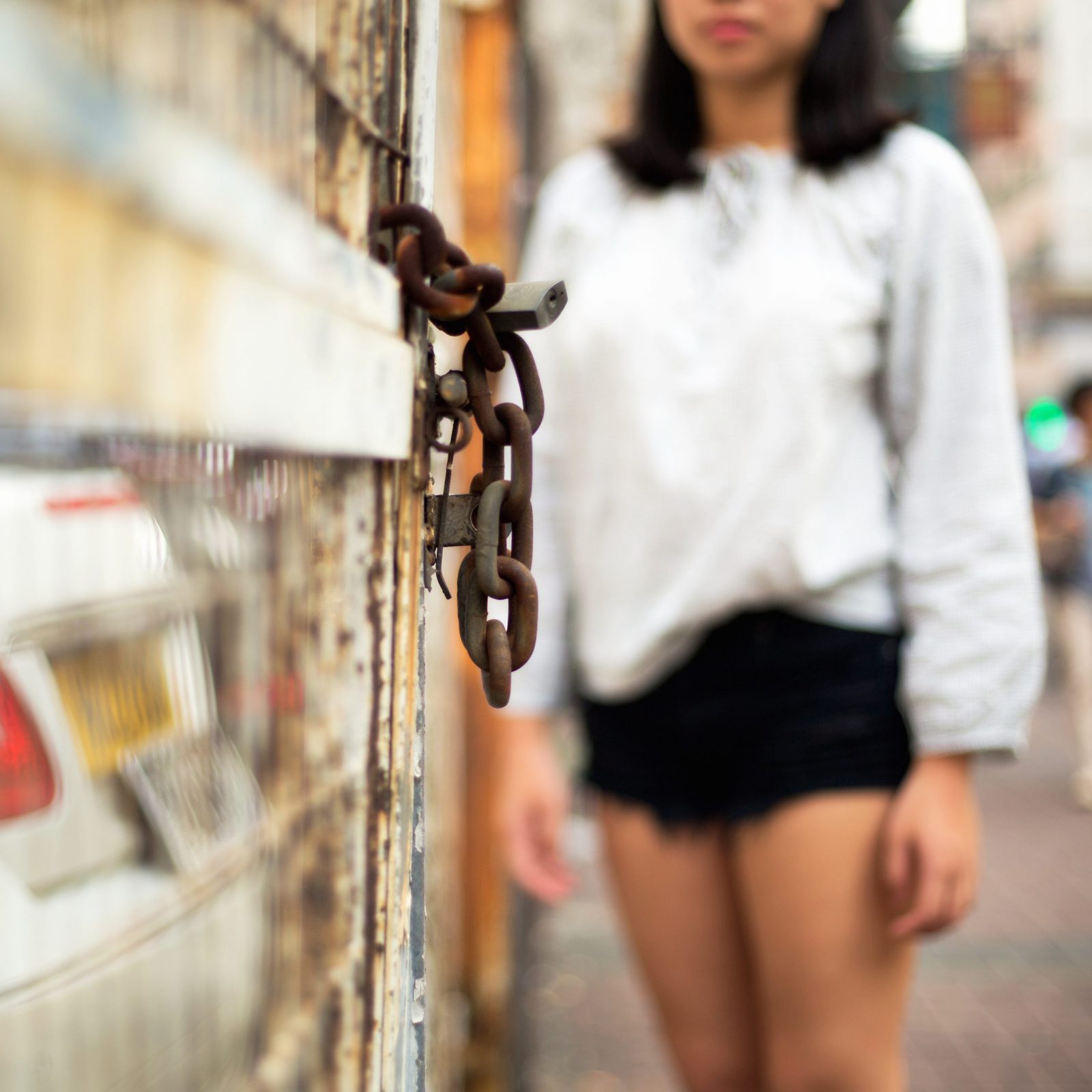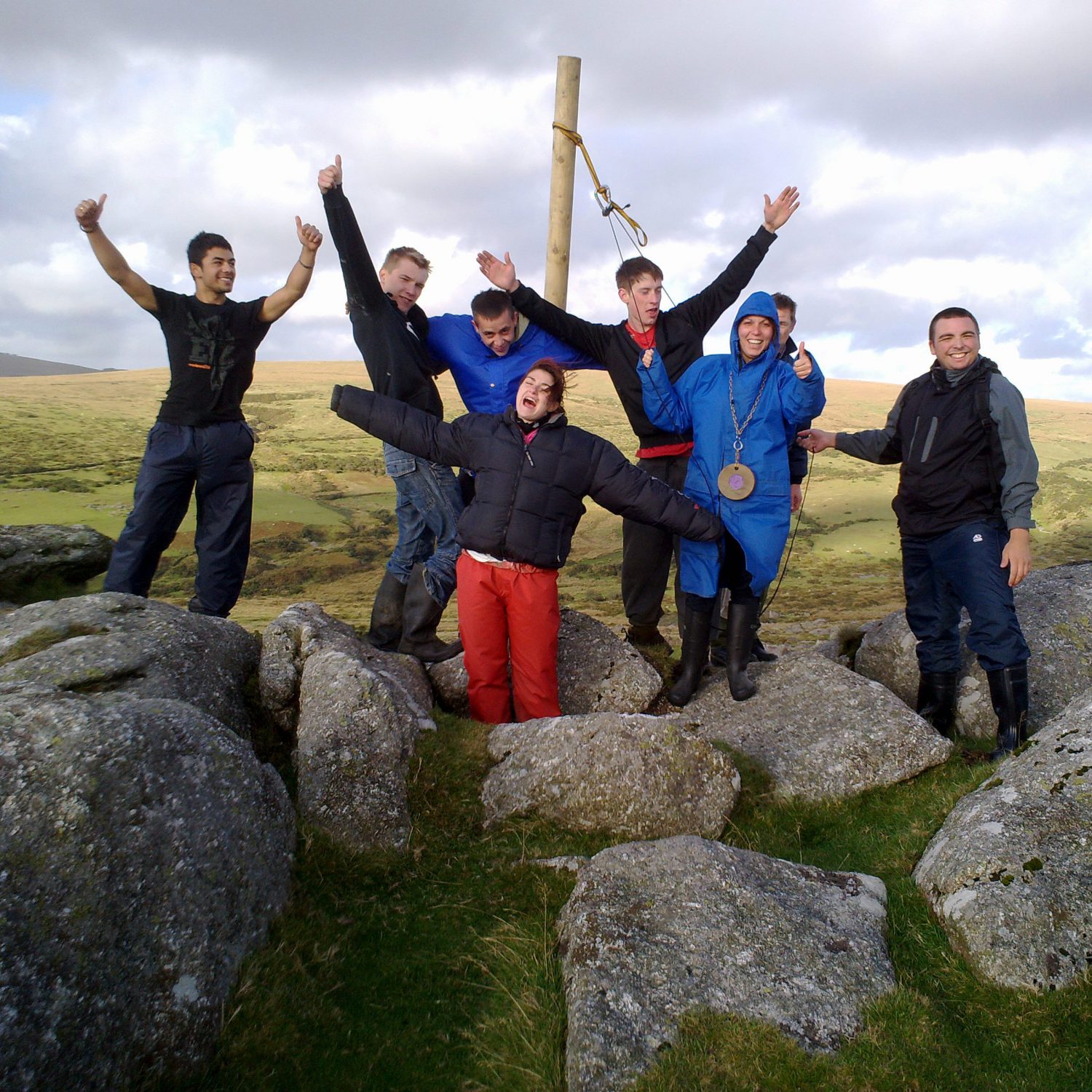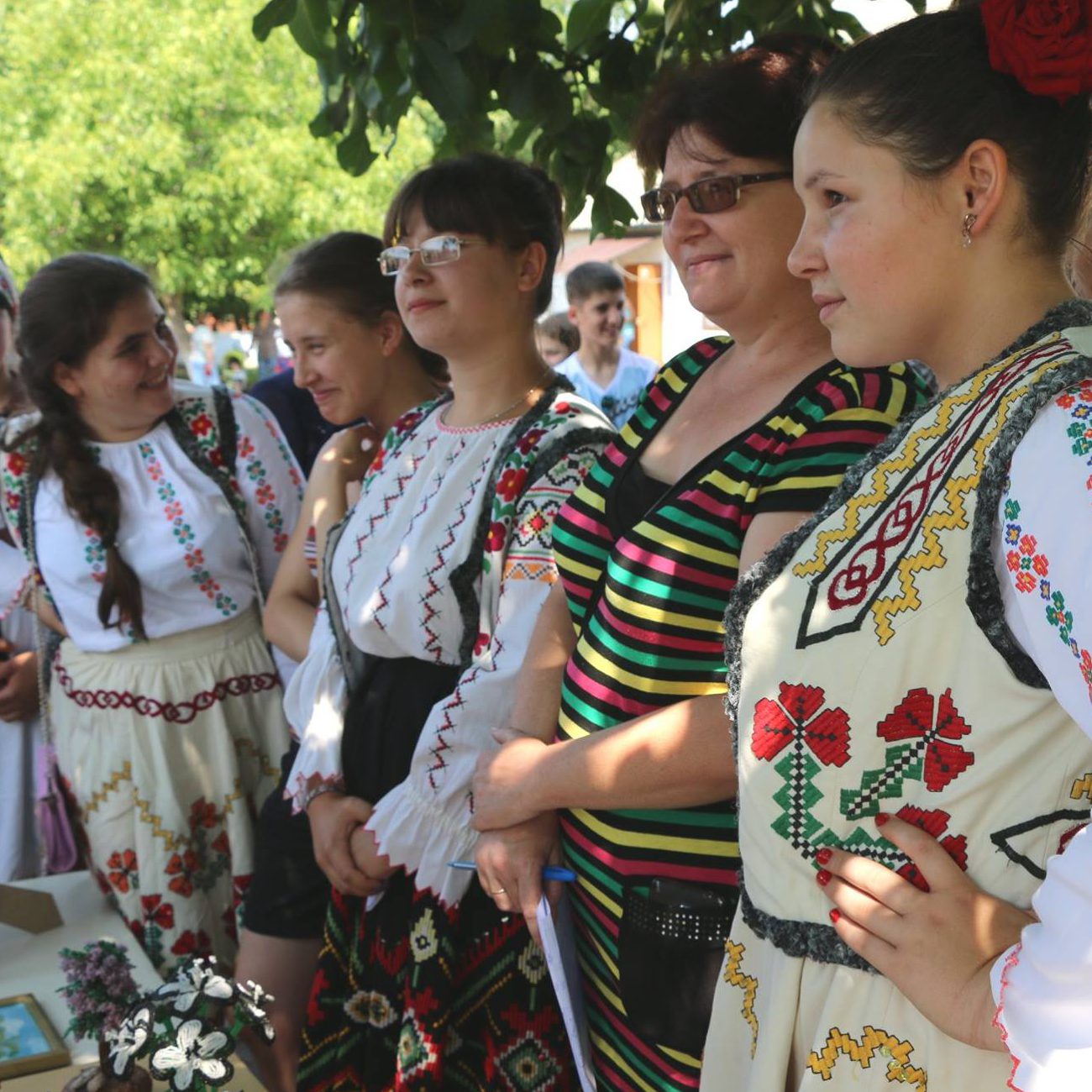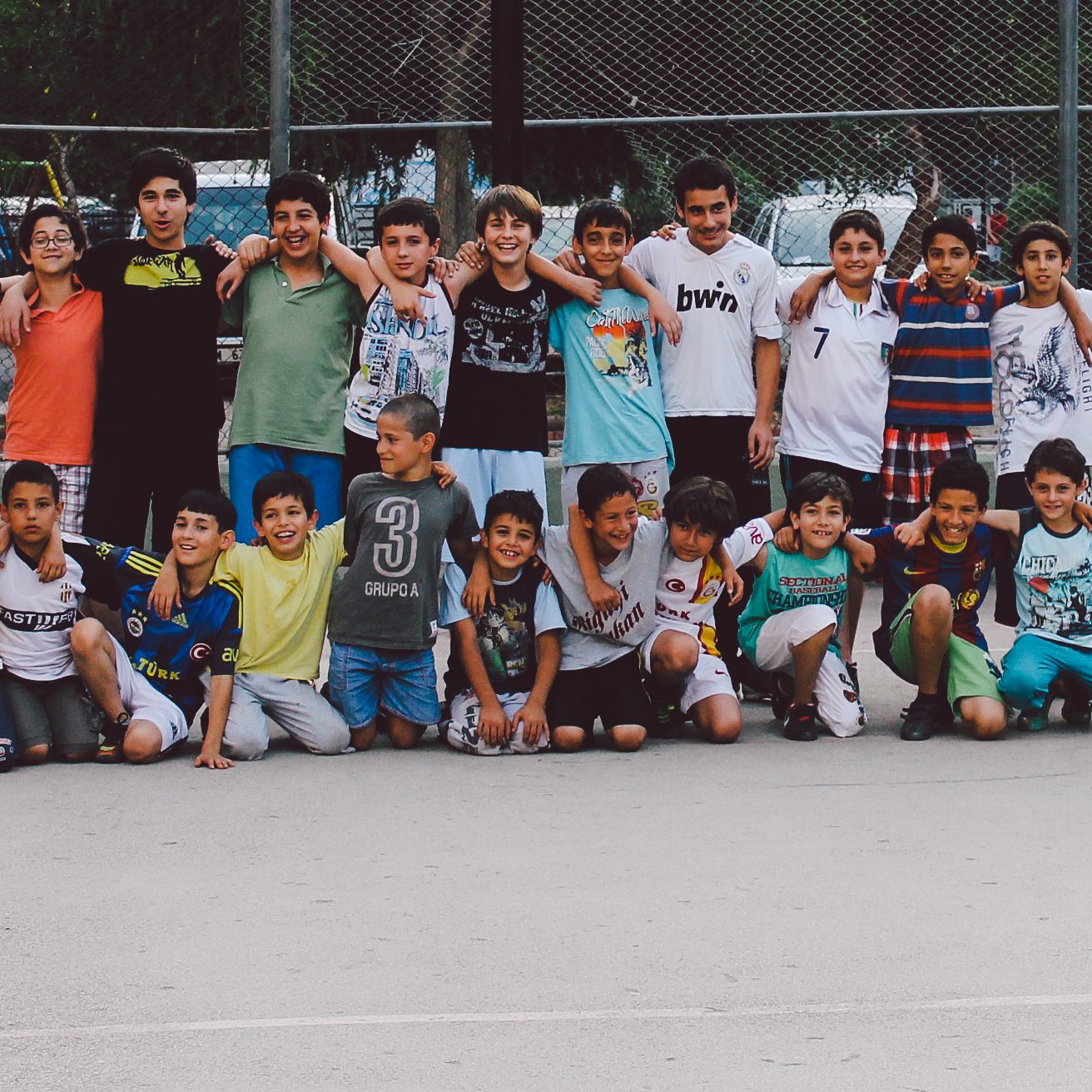A microloan program proves incredibly valuable to youth living with disabilities in Kyrgyzstan.
The city of Osh is located in the southwestern part of Kyrgyzstan, separated from the northern half of the country by sprawling mountains. Osh is at the eastern end of the fertile Fergana Valley, an ancient trading and farming region that is still home to a complex mix of ethnicities and unique traditions.
Unfortunately, this rich cultural diversity was exploited in 2010, when widespread riots and looting destroyed hundreds of minority Uzbek businesses and houses.
It’s still unclear who was behind the violence, but the result was tragic: over 400 people were killed and 80,000 displaced.
At the time, Global Fund for Children was supporting a local NGO, Ulybka (“Smile”), whose primary program focus had been preventing the trafficking of local girls. During the riots, however, Ulybka’s office was destroyed. And as a grassroots NGO with deep connections to the community, Ulybka also experienced the suffering of families, friends, and neighbors. Nevertheless, Ulybka was determined to continue its work, and with the help of a GFC emergency grant and continued program support, the organization gradually got its office and programs running again.
The “events” of 2010, as they are known locally, changed the city and changed Ulybka as an organization. The events were a huge blow to local businesses and the economy, and because of its relationships throughout the city, Ulybka knew how difficult it was for the city’s families to rebuild their lives. Ulybka therefore settled on the idea of trying to help families through microloans and submitted a grant proposal to GFC for this purpose.
Ulybka’s microloan program focused particularly on families with teenagers who were living with disabilities because of the high level of vulnerability these teenagers faced. None of the teens had completed secondary school—few had even completed primary school—and their prospects for the future seemed poor. But Ulybka knew these families well and encouraged the teenagers to submit business plans in order to win the microloans, which were usually a few hundred dollars.
The microloan program started in 2013, and the loans that were awarded then are still helping those individuals turn a profit for themselves and their families three years later. I visited four such teens during the last week of September in Osh.
My first visit was to a local family with a bread-making business. This family makes the famous Central Asian “lepyoshka” bread, a round bread that is kneaded, marked with traditional designs, sprinkled with seeds, brushed with some condensed milk, and stuck to the inside of a homemade brick oven to bake for 10 to 15 minutes.
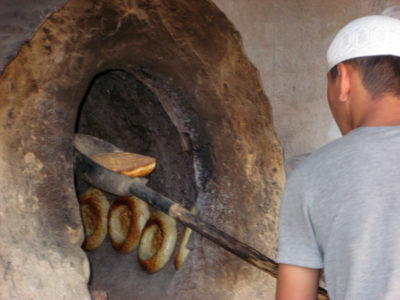
One of the family’s bakers is Makhudzhon, a teenager living with disabilities who used Ulybka’s microloan to buy supplies to build the homemade oven for the bread. Makhudzhon, like many of the young people I’ve met here, lives at home with a large family. Some members of the family need to earn a living to support the family, and with Makhudzhon’s help, this particular family is now supplying much of the lepyoshka in the neighborhood.
The next teenager I visited was Rakhamatillo, a young guy who uses a wheelchair and had proved to be an energetic dancer during some holiday celebrations I had attended the previous two years. When I arrived at Rakhamatillo’s house, he was cutting up cardboard boxes to be repainted as boxes for the cakes made by his family. The microloan that Rakhamatillo secured helped buy baking equipment for cakes.
The cake-making business now supports the whole family, and Rakhamatillo is a key contributor to his family’s business.
The third family I visited lived in the hills up above the city. The outskirts of Osh are home to a large Uzbek community, most of whom had to rebuild their homes and lives after the 2010 events. Shokhrukh, a young man with several physical disabilities, used the microloan he won from Ulybka in 2013 to buy two goats. Three years later, the family business has four goats, a dozen chickens, and several rabbits, all of which are grown and then sold at the local market, with the profits going back into the business to buy more animals.
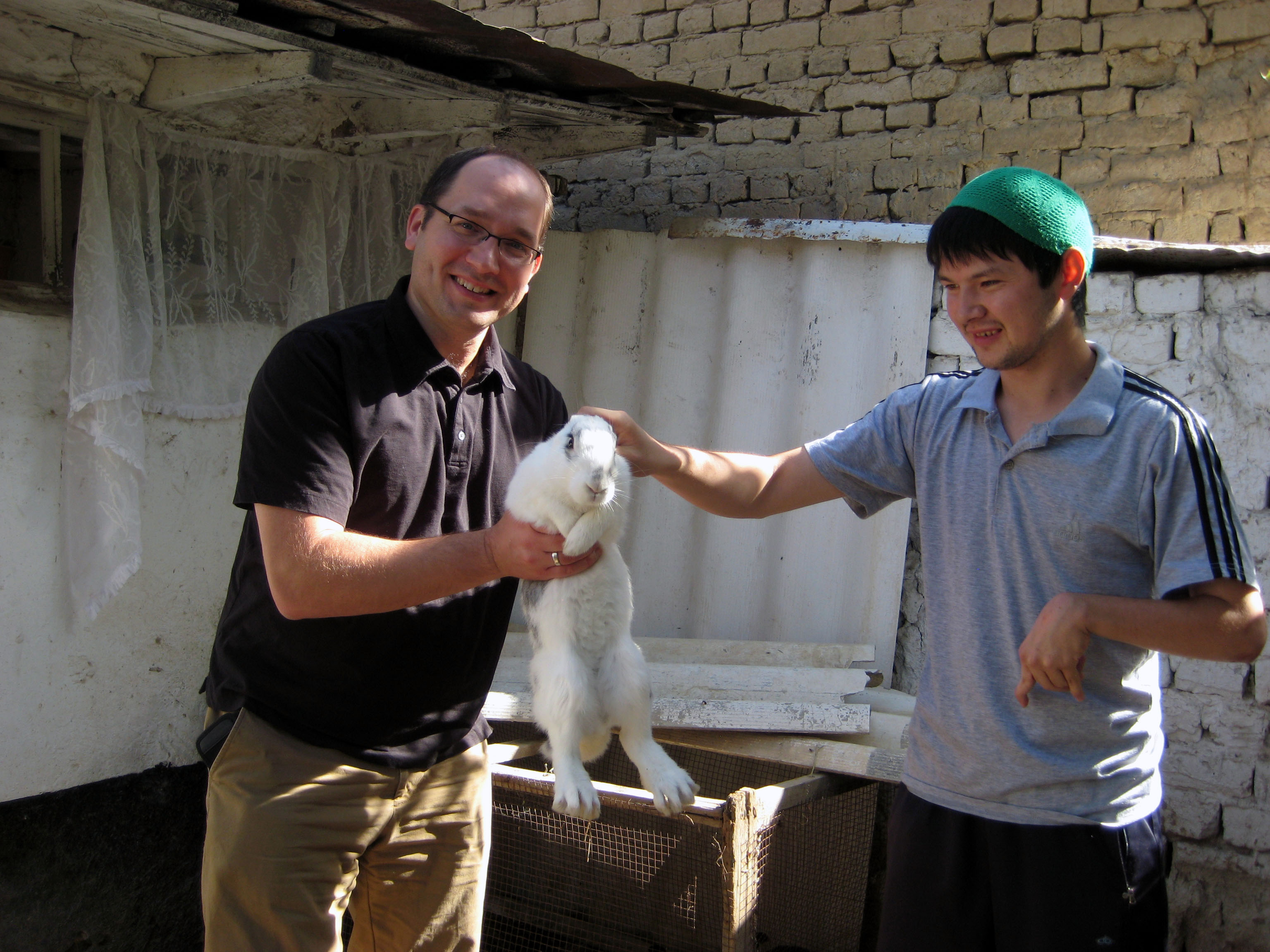
Like Shokhrukh, the last person we visited used the microloan from Ulybka to turn a few animals into dozens of animals. In this case, the young entrepreneur is a teenage girl, Madina, with physical disabilities. Madina started with a few chickens and continued to grow them, sell them, buy more, and repeat the process to increase the profits of the business. In fact, Madina has become something of an egg specialist—I was told that people drive from miles around to buy eggs from Madina’s special “American” chickens, a type of local chicken (with a funny and coincidental name) that produces eggs with an amazing and unique taste, according to the locals.
This impressive collection of young people used their natural business skills to help themselves and their families, despite a difficult economic situation and despite living with severe physical disabilities. Their success also reflects one of Global Fund for Children’s core beliefs: even a small input of resources, in the right hands, can achieve big results.
